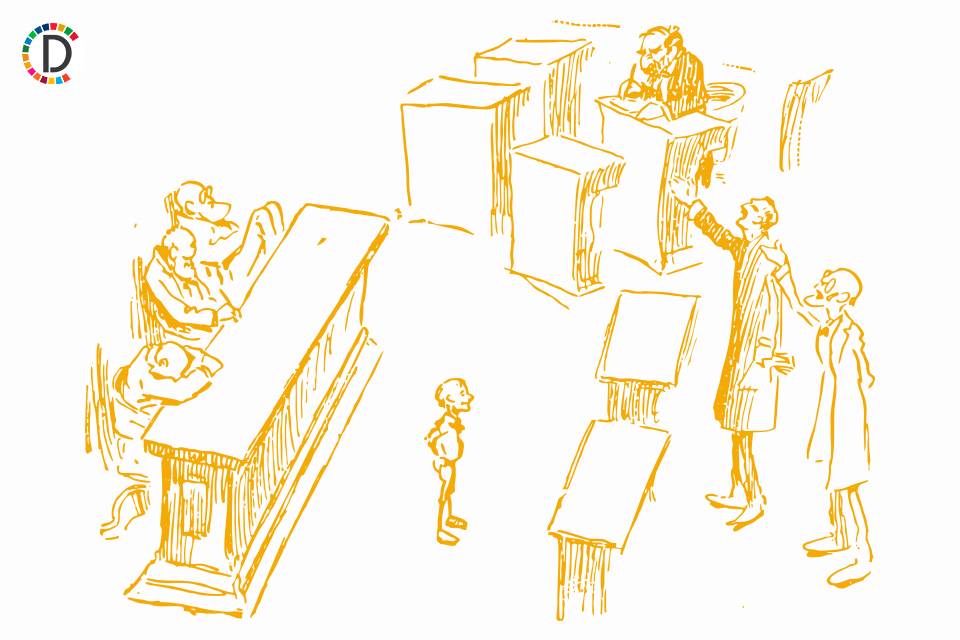CJ Isa Raises Concerns Over Attempts to Influence Judicial Process
Pakistans Chief Justice Qazi Faez Isa on Tuesday said that pushing the judiciary towards taking a certain action was akin to interference in the judicial process.The top judge made the remarks while presiding over a six-member panel of Supreme Court judges who took up hearing of the case about the alleged interference by the intelligence agencies in the working of the judiciary.The panel included Chief Justice Isa, Justice Syed Mansoor Ali Shah, Justice Yahya Afridi, Justice Jamal Khan Mandokhail, Justice Athar Minallah, Justice Musarrat Hilali, and Justice Naeem Akhtar Afghan.

- Country:
- Pakistan
Pakistan's Chief Justice Qazi Faez Isa on Tuesday said that pushing the judiciary towards taking a certain action was akin to interference in the judicial process.
The top judge made the remarks while presiding over a six-member panel of Supreme Court judges who took up hearing of the case about the alleged interference by the intelligence agencies in the working of the judiciary.
The panel included Chief Justice Isa, Justice Syed Mansoor Ali Shah, Justice Yahya Afridi, Justice Jamal Khan Mandokhail, Justice Athar Minallah, Justice Musarrat Hilali, and Justice Naeem Akhtar Afghan. The proceedings were broadcast live.
During the hearing, the panel vowed to protect the independence of the judiciary while giving time to different petitioners and the government, including the intelligence agencies, to file their respective responses.
Chief Justice Isa highlighted the divide in the country which was pulling apart various segments of the country and interfering in the judiciary. "Don't pressure us to run on your path; pushing the judiciary on your path is also interference," he said.
''If somebody can impose a will upon this court, that is also interference; interference can be from within, from without, from intelligence agencies, from your colleagues, from your family member, from social media, from everybody else,'' Isa said.
Justice Minallah said that the state had to protect the judges and the judiciary's independence.
''The state is to protect the judges and independence of the judiciary. When it becomes the aggressor, which each high court is saying; that is what is the issue and it is happening," he said, adding that it had been going on for the last 76 years.
At the conclusion of today's hearing, the court ordered the petitioners — the bar councils and associations — to submit a response by the next hearing on May 7, adding that it would be appropriate if it was unanimous.
It also said that the federal government and the intelligence agencies could submit their responses through the attorney general if they wanted.
The case is based on a letter written by six Islamabad High Court (IHC) judges on March 25, alleging interference of agencies in their matters. The apex court took suo motu notice of the letter and later several bar councils also filed petitions and they were made parties to the case.
In the startling letter signed by the IHC Justices Mohsin Akhtar Kayani, Tariq Mehmood Jahangiri, Babar Sattar, Sardar Ejaz Ishaq Khan, Arbab Muhammad Tahir and Saman Rafat Imtiaz, they had accused the country's intelligence apparatus of pressurizing judges through abduction and torture of their relatives and secret surveillance inside their homes.
Initially, the government had set up a one-man commission led by former chief justice of Pakistan Tassaduq Hussain Jillani to probe the allegations but the judge rescued himself, followed by the suo motu action by the Supreme Court. The last hearing was heard by a seven-member bench but Justice Yahya Afridi recused himself from the bench.
(This story has not been edited by Devdiscourse staff and is auto-generated from a syndicated feed.)
ALSO READ
Zomato and Swiggy Respond to CCI Investigation Allegations
Political Crossfire: Shivakumar Counteracts Modi's ATM Allegations
BJP Targets Congress Over Allegations of 'Anti-Hindu' Sentiments
Fadnavis Confident in Assembly Victory Amidst Opposition Allegations
Election Commission Dismisses TMC's Allegations of Inaction










